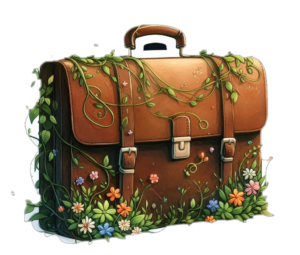Hello, literature lovers of Tokyo! Today, let’s delve into the wisdom of Haruki Murakami, a world-renowned author born from the streets of Tokyo. We’re embarking on a journey to explore life’s truths through his masterpiece, “Kafka on the Shore.” This quote offers profound insights into life’s unpredictability and our attitude towards it.
– Haruki Murakami, “Kafka on the Shore” (2002)
“Sometimes fate is like a small sandstorm that keeps changing directions. You change direction but the sandstorm chases you. You turn again, but the storm adjusts.”
💡The author’s background
Haruki Murakami, born in Kyoto in 1949, studied at Waseda University in Tokyo. He began his writing career while running a jazz bar in Tokyo. His unique style and keen observations of modern society have captivated readers worldwide. He’s the author of numerous acclaimed works including “Norwegian Wood” and “1Q84.”

💡About his books
“Kafka on the Shore” is a mysterious novel intertwining the stories of 15-year-old Kafka and an old man named Nakata with peculiar abilities. This quote is spoken to Kafka as he tries to escape his fate. It beautifully illustrates life’s unpredictability, comparing it to a sandstorm that pursues us no matter how we try to change direction.
💡The maxim in his books
This quote expresses the power of fate and the individual’s apparent powerlessness against it. However, it also suggests the strength of humans who continue to face adversity. Throughout the novel, this theme of battling fate repeatedly appears, serving as a crucial element in the characters’ growth.

💡What we can learn from the maxim
From these words, we learn the importance of accepting life’s uncertainties. While fate may move regardless of our will, it teaches us the value of moving forward. It also suggests that facing difficulties is an opportunity to discover our inner strength.

💡Works and historical background
Early 2000s Japan, when “Kafka on the Shore” was written, was a society in transition. Still reeling from past traumas like the Aum Shinrikyo attack, it sought new values. Literature explored collective memory and history. Youth questioned traditional identities, while society reevaluated postwar events, especially 1960s student movements. Murakami’s novel reflects this era, examining personal memory, history, and new generational possibilities against a backdrop of societal change and introspection.

💡Other Works
I highly recommend exploring more of Murakami’s brilliant works:
- “Norwegian Wood” (1987) – A story of youth and loss
- “The Wind-Up Bird Chronicle” (1994) – A long novel delving into the darkness of modern society
- “1Q84” (2009-2010) – An epic work blending reality and fantasy with sci-fi elements
These works will also provide deep insights into life’s truths.
Citations:
[1] https://thesologlobetrotter.com/quotes-about-tokyo/
[2] https://www.mysuitcasejourneys.com/tokyo-quotes/
[3] https://mailmate.jp/blog/famous-japanese-quotes
[4] https://www.goodreads.com/author/quotes/5493334.Y_Miri
[5] https://cherryblossomstories.com/20-thought-provoking-quotes-by-14-famous-japanese-novelists/
[6] https://www.goodreads.com/author/quotes/8550.Yasunari_Kawabata




Comments